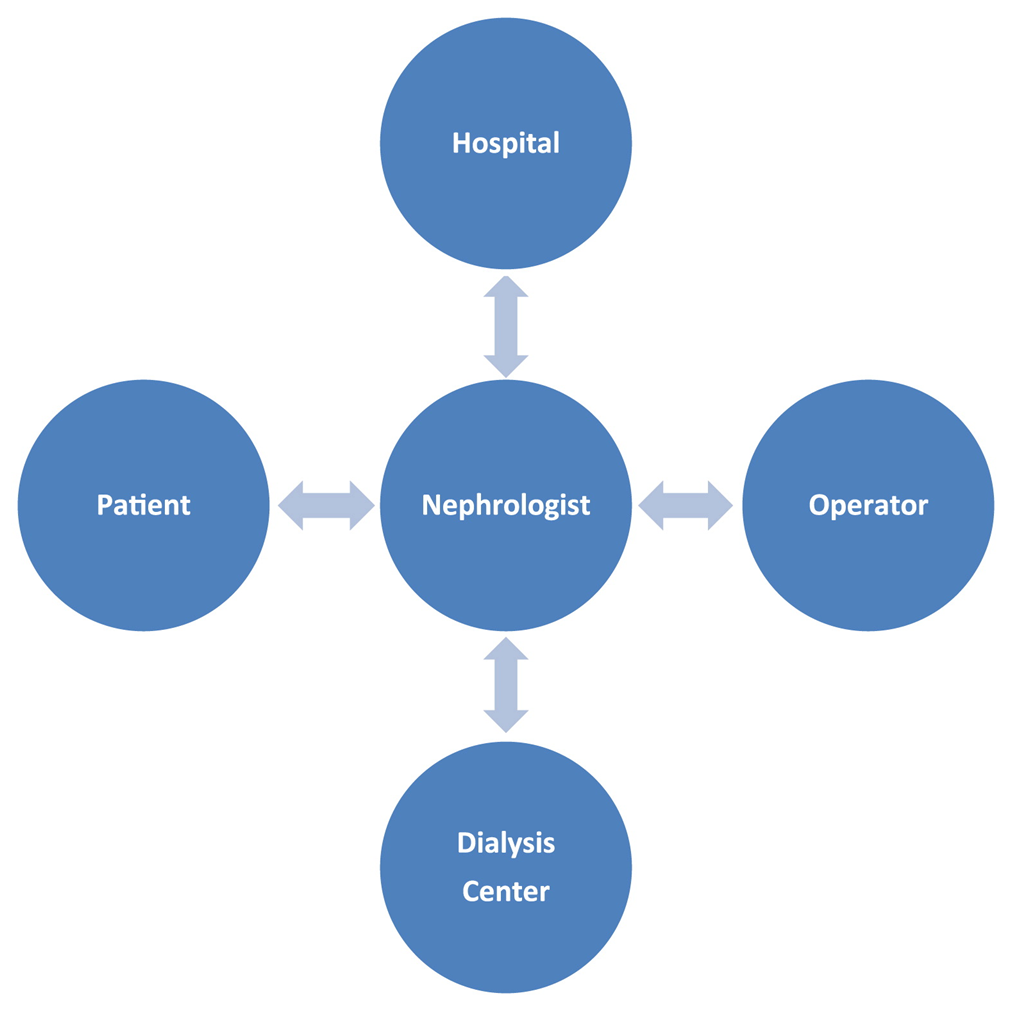Urgent Need for Urgent Start Peritoneal Dialysis

Key elements of a successful urgent-start peritoneal dialysis program. Fig 1 Arramreddy et al AJKD, © National Kidney Foundation.
In the article, Urgent Start Peritoneal Dialysis: A Chance for a New Beginning, the authors suggests a paradigm shift from our conventional algorithm of renal replacement therapy. They bring to the forefront the concept of urgent start peritoneal dialysis. This concept addresses the challenges of the late referral or urgent dialysis initiation. These patients are an unfortunate reality for the nephrology community.
The article raises key barriers to urgent start peritoneal dialysis programs. While the patient and their nephrologist represent two of the primary barriers, the authors note three other components necessary to facilitate the urgent initiation of peritoneal dialysis. These include the operator, the hospital, and the dialysis center. It is only when these units are functioning efficiently and harmoniously can the possibility of urgent start peritoneal dialysis be entertained.
Perhaps one of the most important components of an urgent start program is the “nephrologist champion.” Without a nephrologist who remains dedicated to this cause and truly believes in the benefits of a home modality, any attempt at an urgent start program is futile. In addition, a skilled operator (interventional radiologist, interventional nephrologist, or surgeon) who is also dedicated to the proper placement of peritoneal dialysis catheters is essential.
The authors discuss the impact of urgent start peritoneal dialysis on a hospital system. Indeed, peritoneal dialysis patients may not be commonplace in many emergency rooms. Surgeons/interventionalists may also have limited experience in dealing with these catheters. Therefore, it is the responsibility of the nephrologist to direct his/her hospital system as to the care of these patients. Protocols should be established to ensure the safe and timely care of these patients in order to prevent infections and mechanical complications.
The process of urgent start peritoneal dialysis will also have a significant impact on the outpatient dialysis center. The infrastructure to accommodate this initiation protocol can place a great deal of strain on staffing and nursing resources. Thus, there must be an appropriate plan to address these expected issues.
There are indeed a growing number of practitioners that are developing urgent start peritoneal dialysis programs throughout the country. Many have witnessed their PD population grow in response to this intervention. It is this type of commitment that is required to break the current paradigm of dialysis care.
Sean D. Kalloo, MD, MBA
eAJKD Contributor
To view the article abstract or full-text (subscription required), please visit AJKD.org.

Leave a Reply